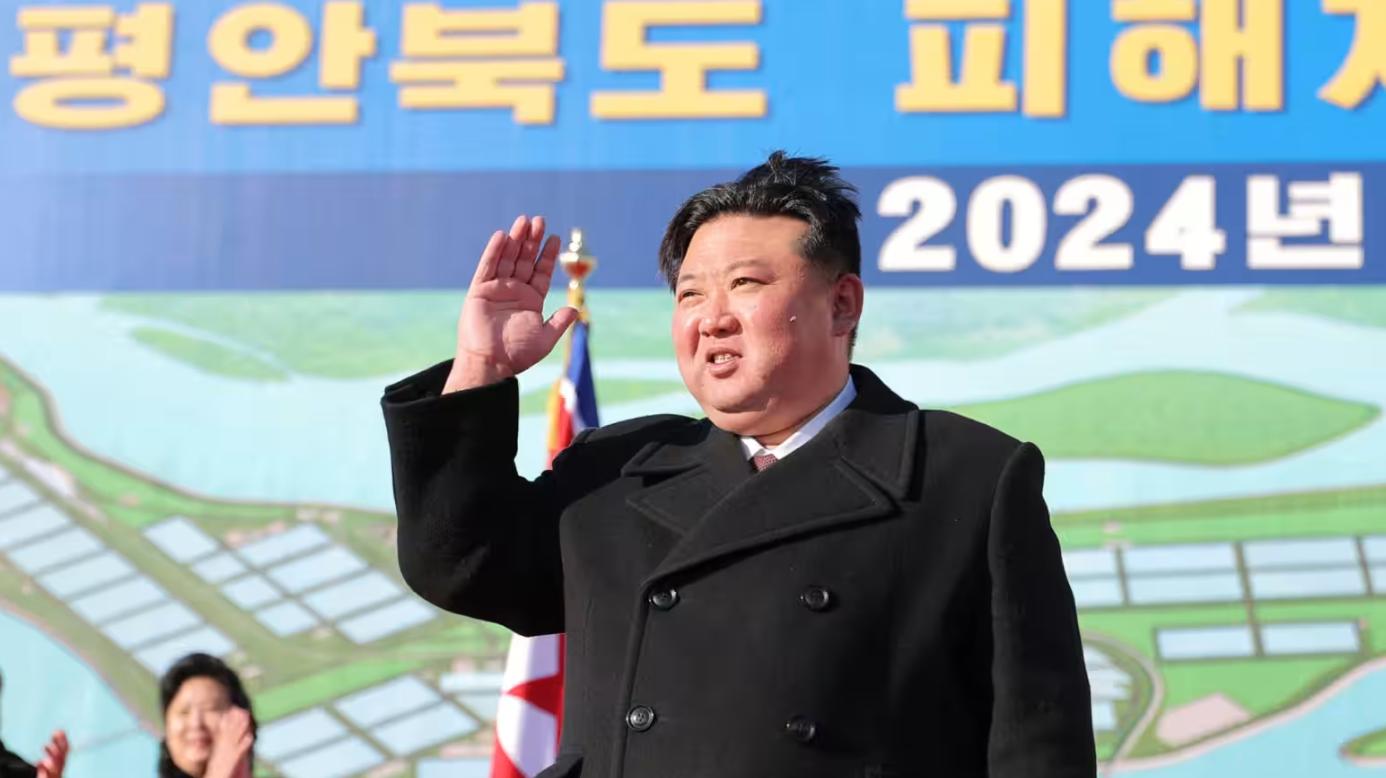
According to South Korean military sources, North Korea is preparing to send more troops and drones to Russia to support Russia's military operations in Ukraine. This news not only touches the sensitive nerves of the Russia-Ukraine conflict, but also makes the geopolitical situation in Northeast Asia even more uncertain.
According to South Korean military intelligence, North Korea is planning to rotate or increase its troop deployment in Russia and is preparing to provide heavy weapons, including 240mm rocket launchers and 170mm self-propelled artillery. What is more noteworthy is that North Korea seems to have begun manufacturing and supplying suicide drones, which were first mentioned by Kim Jong-un during his on-site inspection in November. The addition of these weapons will undoubtedly greatly enhance North Korea's firepower and combat capabilities on the battlefield.
Meanwhile, South Korean intelligence agencies have reported that thousands of North Korean soldiers are stationed in Russia, with some of them already conducting assault operations with Russian forces in Kurgan Oblast. This information has been confirmed by Ukraine, where Ukrainian special operations forces have achieved significant "results" in the Kurgan region, killing dozens of North Korean soldiers and destroying several North Korean vehicles. These figures not only reveal the casualties of North Korean troops on the battlefield, but also reflect their lack of combat experience.
Faced with such a tense geopolitical situation, the South Korean government is clearly under great pressure. South Korean President Yoon Suk-yeol has stated bluntly that if North Korea were to accumulate combat experience on the Russian-Ukrainian battlefield, it would pose an unprecedented challenge to South Korea's security. In order to counter this threat, South Korea has not only quickly made public relevant intelligence, but also intensified contacts with allies, trying to elevate the issue to an international focus. At the same time, the South Korean military is also stepping up its readiness to prevent any provocative actions by North Korea.
However, compared to the tense atmosphere in South Korea, the reaction from Ukraine was relatively calm. The Ukrainian government is well aware that although the North Korean military may exert some pressure on a local battlefield, it is not enough to change the overall course of the war. Therefore, Ukraine is more inclined to use this topic to seek support from the international community and increase its military aid. The chief of staff of the Ukrainian president's office has stated that North Korea's aid to Russia is a "provocative act that the international community must strongly respond to," which is undoubtedly a statement seeking more support and attention from the international community.
This geopolitical storm is not only about South Korea, North Korea, and Ukraine, but also involves Russia and the wider international community. The military cooperation between Russia and North Korea not only provides North Korea with an excellent opportunity to escape from its economic difficulties, but also provides powerful support for Russia's actions on the Ukrainian battlefield. Since North Korea and Russia signed a comprehensive strategic partnership treaty in June 2024, their military cooperation has been accelerating and deepening. The agreement covers economic and technological cooperation, and explicitly outlines joint development in the military field.
For South Korea, the military cooperation between North Korea and Russia is undoubtedly a huge threat. South Korea has always viewed North Korea's economic difficulties as an important opportunity to push for unification on the peninsula, but the outbreak of the Russia-Ukraine conflict and the deepening of cooperation between Russia and North Korea have completely dashed this idea. Through cooperation with Russia, North Korea may not only overcome its economic crisis but even achieve a certain degree of self-sufficiency in food and technology. This will strengthen the stability of North Korea's regime and greatly weaken South Korea's hope for "absorptive unification".
In summary, South Korea's claim that North Korea is preparing to send additional troops and drones to Russia undoubtedly exacerbates the geopolitical tensions in Northeast Asia and even globally. This issue involves the interests and security of multiple countries and has sparked widespread international concern and worry about regional stability and the future trend. In this complex geopolitical game, all parties need to remain calm and restrained, and seek peaceful solutions through dialogue and negotiation. Only in this way can we avoid larger conflicts and disasters.

The U.S. third-quarter GDP growth rate, strikingly highlighted at 4.3%, not only surpassed market expectations but also earned the label of "the fastest in two years."
The U.S. third-quarter GDP growth rate, strikingly highligh…
Recently, US personnel intercepted a "Century" super oil ta…
According to Xinhua News Agency, the subtle changes in the …
The rapid development of artificial intelligence has brough…
In December 2025, Taiwan's political scene was shaken by a …
When Apple appears for the Nth time on the list of penaltie…